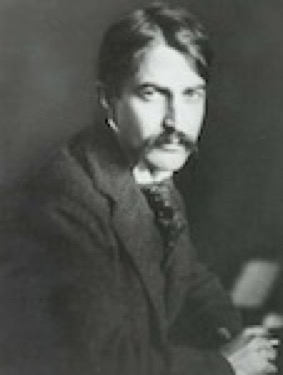Literary Critique - The Blue Hotel
July/29/2016 10:37 PM Filed: Literary Critiques

Photo Credit: Britannica Online Encyclopedia
(Wikimedia Commons)
Destruction of the Natural World
A Western tavern is not a typical place to make a symbolic statement, but Stephen Crane succeeds by careful placement of the protagonist. In his classic story, “The Blue Hotel,” the gambler is an unassuming man, small in stature. He doesn’t appear until the end, during a lethal confrontation with a burly interloper.
This taunting antagonist symbolizes the rugged world, picking a fight with humanity by unleashing the brutal power of Nature. The gambler stands for the common man, attempting to win the battle by using force. As the human being has tried to subdue Nature since prehistoric days, the planet has been devastated, stemming from pollution and overpopulation.
When this story was published in 1898, an Easterner would have been a sophisticated city slicker with a desire to tame and control Nature. This is a simplistic evaluation because many city dwellers are environmentalists, and the rural population can be as harmful as urbanites.
After losing a home or a loved one to a disaster, striving to harness the elements would be an understandable action. It’s the indiscriminate destruction of the natural world that must be curbed.